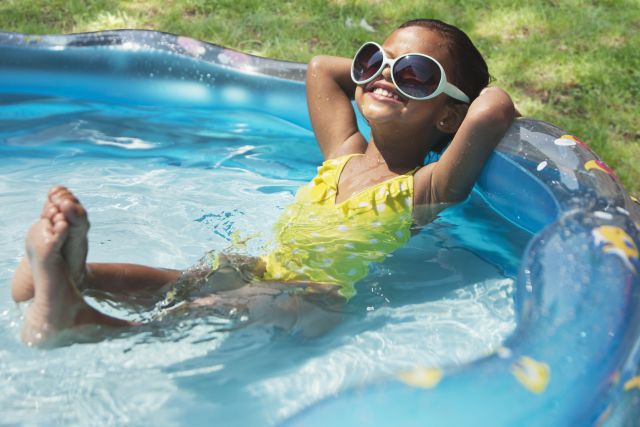Updated on April 17, 2024.
Maybe you make sure your kids wear sunglasses if you go to a beach. But do you take the same precaution when they’re playing outside in the backyard or walking around the neighborhood? If the answer is no, your child’s vision could be affected later in life.
Here's why: Years of overexposure to the sun's ultraviolet (UV) rays can raise the risk for developing eye problems in the future. These troubles include cancer of the eye or eyelid. They also include vision issues such as macular degeneration or cataracts (cloudy areas in the lens of the eye).
People with any eye color can develop UV-related eye problems. But the chances are greater for those with blue, green, or hazel eyes, according to the American Academy of Ophthalmology (AAO). For example, people with lighter eyes are more susceptible to developing rare eye cancers, like iris and uveal melanomas.
Why kids' eyes are vulnerable
Too much sun can affect anyone's eye health. Children and teens, however, are at higher risk for damage. That's because their eyes' lenses—which bend and focus light—aren’t mature. They aren’t able to filter out as much UV radiation as an adult eye. This can seriously harm the retina, the tissue at the back of the eye that makes sight possible.
Protect your child's eyes with sunglasses
Wearing sunglasses can safeguard your child's eyes. Try these tips for choosing the right pair.
Check the label. Not all sunglasses blocks UV rays. The AAO recommends only buying glasses that are labeled “UV400” or “100% UV protection.” These sunglasses filter both UV-A and UV-B rays.
Color coordinate. Look for sunglasses that are dark enough to reduce glare, but aren’t too dark to distort colors. It can help to choose a lens tint that blocks between 80 and 90 percent of transmissible light. Neutral gray, amber, brown, or green are all good color options.
Make a fashion statement. Pick sunglasses that wrap all the way around your child’s head. Younger kids may need to wear sunglasses with a Velcro strap that helps keep them on. You also want the lenses to be large enough to completely cover your kid’s eyes. These offer the best coverage.
Don’t let the clouds fool you. Bring sunglasses with you even if it's overcast outside. Damaging UV rays can go through clouds and burn both your skin and eyes.






